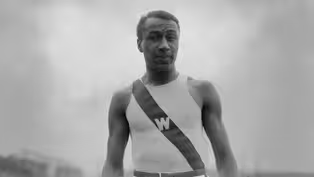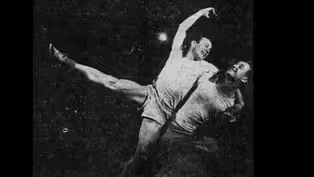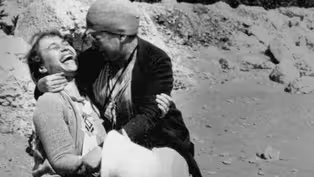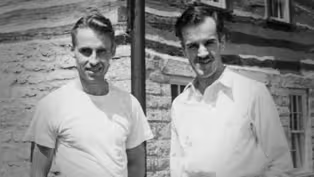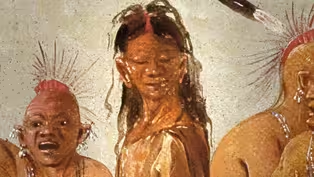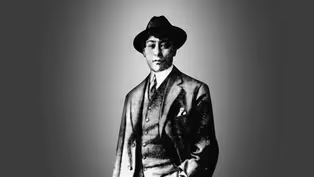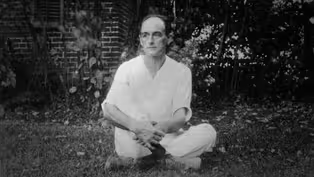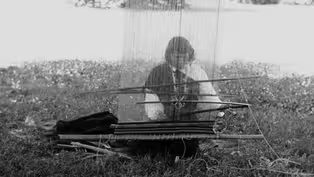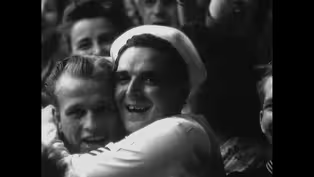Wisconsin Pride
The Purge
Clip: Special | 6m 11sVideo has Closed Captions
A secret policy of removing gay students and staff from UW-Madison took an enormous toll.
Being gay at UW-Madison from the late 1940s to the early sixties came with tremendous risk. Students suspected of being homosexual were routinely sent to the Dean’s office for questioning. There they were asked intensely personal questions and made to name others. Unknown numbers of students were exposed to their families and expelled from the University.
Problems playing video? | Closed Captioning Feedback
Problems playing video? | Closed Captioning Feedback
Wisconsin Pride is a local public television program presented by PBS Wisconsin
Funding for Wisconsin Pride is provided by Park Bank, SC Johnson, the Greater Milwaukee Foundation, the Evjue Foundation, the charitable arm of the Capital Times, TruStage, the New Harvest Foundation,...
Wisconsin Pride
The Purge
Clip: Special | 6m 11sVideo has Closed Captions
Being gay at UW-Madison from the late 1940s to the early sixties came with tremendous risk. Students suspected of being homosexual were routinely sent to the Dean’s office for questioning. There they were asked intensely personal questions and made to name others. Unknown numbers of students were exposed to their families and expelled from the University.
Problems playing video? | Closed Captioning Feedback
How to Watch Wisconsin Pride
Wisconsin Pride is available to stream on pbs.org and the free PBS App, available on iPhone, Apple TV, Android TV, Android smartphones, Amazon Fire TV, Amazon Fire Tablet, Roku, Samsung Smart TV, and Vizio.
- Lewis Bosworth: I was at home in my apartment one day in 1962, and the phone rang.
[rotary phone rings] It was one of my friends.
He explained to me that there was this purge going on to rid the University of gay male students.
- Scott Seyforth: Lewis Bosworth, he is one of only two former students that has ever spoken publicly about their involvement in the purge.
- The purge was a systematic effort to identify gay students and staff and discretely remove them from the University of Wisconsin-Madison.
The policy was a carryover fr om the paranoia of the 1950s, starting with the Red Scare.
- Joseph McCarthy: Even if there were only one communist in the State Department, that would still be one communist too many.
- Which led to the Lavender Scare, a campaign to ban homosexuals from working in the federal government.
- Ashley Brown: Gays and lesbians really became the scapegoats.
It is assumed that gay men and lesbians are actually threats to national security and that they can be blackmailed.
- The hunt for homosexuals at the University began as a response to the Haresfoot scandal.
Fourteen years later, in 1962, the purge pressed on.
- Dick Wagner: The Dean of men, Dean Zillman, started to compile a list of hundreds of male homosexuals on campus.
And he would call people in and ask them to name names, which was clearly a McCarthy-type tactic.
- Theodore Zillman had been an attorney and personally questioned suspected homosexuals.
Heavy consequences awaited those who confessed.
- Dick Wagner: The University would inform parents, basically, would force the kids to come out.
- Scott Seyforth: They were ruining people's lives.
Kicking out people right before graduation.
There are cases of students attempting suicide.
You read these transcripts.
It's heartbreaking.
- One name on Zillman's list was sophomore Lewis Bosworth.
- Lewis Bosworth: I was getting calls from the Dean's office to come in, and I ignored it as long as I could, simply on the grounds that it wasn't any of their business.
- Scott Seyforth: Dean Zillman didn't like it when people didn't respond to his request.
- Lewis Bosworth: A detective from the University Police came to my place of employment and threatened me.
And so, I finally did go to the Dean of Men's office.
They certainly were a whole lot worried about gay men, young men.
- Scott Seyforth: Dean Zillman interrogated him.
It must have been terrifying to be on the receiving end of an interrogation about your sexuality in the 1960s.
- Lewis Bosworth: I was afraid that I might be expelled.
Well, I lied through my teeth when he asked me if I was homosexual.
Since I denied everything, there wasn't anything they could do with me.
- But Dean Zillman had other plans.
- Lewis Bosworth: I had been accepted to a program abroad, a junior year abroad program.
Well, they reneged on that.
They took away the scholarship.
I graduated in '64.
There were other people involved in that who fared less well than I did.
- Hunted, harassed, the University's years-long purge ensured that hundreds of gay students would never make it to graduation.
- Lewis Bosworth: It was important to their quote-unquote investigation to get as many names on their list as they could, and I refused to do that.
I didn't give them any names.
- Defiant in the face of bigotry, Lewis Bosworth went on to become an outspoken activist.
He later returned to UW-Madison and built a career ce ntered on welcoming students, helping them navigate the college experience rather than kicking them out.
[birds chirping] - Scott Seyforth: It was spring of 2013.
I went into the LGBTQ+ graduation ceremony.
And sitting at one of the tables was Lewis Bosworth, sitting by himself.
I was stunned.
I said, "Lewis, what is it like for you to be at this?"
He says, "Scott, it's unimaginable.
"When I was this age, this would have been unimaginable."
- Dick Wagner: One of the amazing things about Wisconsin is that early on, gay and lesbian people found ways to affirm their own identity.
In their own way, they could achieve a certain amount of liberation.
Video has Closed Captions
Clip: Special | 7m 25s | La Crosse’s George Poage, the first Black Olympic medalist, lived a hidden life. (7m 25s)
Video has Closed Captions
Clip: Special | 6m 35s | In UW’s Haresfoot club, men performed in drag, but members ran afoul of the University. (6m 35s)
Video has Closed Captions
Clip: Special | 6m 13s | The progressive, visionary lesbian couple behind Milwaukee's Institute of Art and Design. (6m 13s)
Video has Closed Captions
Clip: Special | 6m 56s | Influenced by Warner’s example, two gay men created the influential historic site. (6m 56s)
Preview: Special | 3m | George Poage, forced to hide his LGBTQ+ identity, became the first Black Olympic medalist. (3m)
Preview: Indigenous Two-Spirit
Preview: Special | 3m 35s | Wisconsin's LGBTQ+ history and present includes Indigenous two-spirit people. (3m 35s)
Video has Closed Captions
Clip: Special | 5m 44s | Put on trial for gender expression, Ralph Kerwineo became the “Girl-Man” of Milwaukee. (5m 44s)
Video has Closed Captions
Clip: Special | 4m 17s | Called Wisconsin’s first out gay man, Warner defied the gender expectations of his time. (4m 17s)
Video has Closed Captions
Clip: Special | 3m 42s | Two-Spirit is a term today encompassing many Indigenous beliefs about gender identity. (3m 42s)
Video has Closed Captions
Clip: Special | 2m 6s | World War Two fight held unfulfilled promises for a better life for LGBTQ+ Americans. (2m 6s)
Providing Support for PBS.org
Learn Moreabout PBS online sponsorshipSupport for PBS provided by:
Wisconsin Pride is a local public television program presented by PBS Wisconsin
Funding for Wisconsin Pride is provided by Park Bank, SC Johnson, the Greater Milwaukee Foundation, the Evjue Foundation, the charitable arm of the Capital Times, TruStage, the New Harvest Foundation,...
